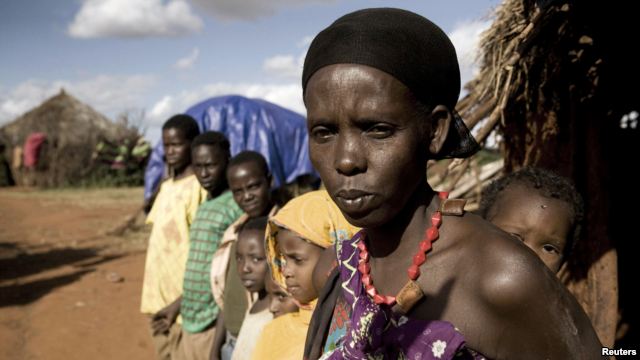 Here are two recent articles offering views of the successes and pitfalls of foreign investment in Ethiopia.
Here are two recent articles offering views of the successes and pitfalls of foreign investment in Ethiopia.
Martha van der Wolf
March 15, 2013
ADDIS ABABA — The United Nations Development Program has released its 2013 Human Development Index. Despite recent economic growth, Ethiopia is still near the bottom of the index.
Ethiopia ranks 173 out of 187 countries in the Human Development Index 2013, unveiled by the United Nations Development Program, UNDP, on Friday.
The Index is part of the Human Development Report that is presented annually and measures life expectancy, income and education in countries around the world.
Since 2000, Ethiopia has registered greater gains than all but two other countries in the world – Afghanistan and Sierra Leone. But it still ranks close to the bottom of the Index.
However, Samuel Bwalya, an economic advisor for UNDP, says that not only the ranking is important.
“I think what matters in the index is how you’re moving, your own human development progress within the country, so you’re moving from 0.275 to 0.378, that movement is what matters,” said Bwalya. “It means that your country is making progress in human development. Now the ranking depends on how other countries are also faring.”
This year’s Human Development Report focuses on the major gains made since 2000 in most countries in the global South.
UNDP believes sub-Saharan Africa can achieve higher levels of human development if it deepens its engagement with other regions of the South.
But those countries must overcome many challenges, such as low life expectancy, high levels of inequality and the growing threat for environmental disasters that could halt or reverse the recent gains in human development.
Bwalya says that government policies are central to human development in Ethiopia:
“The most important is to continuously commit to two policy arenas: the economic program in the country is robust and the government should have continuous commitment to development,” he explained. “The second is that it should continue the social protection program that has been so important in reducing poverty.”
While the Human Development Report and Index celebrate improvements across the developing world, a hard fact remains – 24 out of the 25 lowest ranked countries are on the African continent.
—-
Related:
Why Are We Funding Abuse in Ethiopia? (The New York Review of Books)
By Helen Epstein
In 2010, the Ethiopian government began moving thousands of people out of the rural villages where they had lived for centuries to other areas several hours’ walk away. The Ethiopian government calls this program the “Commune Center Development Plan and Livelihood Strategy” and claims it is designed to bring scattered rural populations closer to schools, health clinics, roads, and other public services. But the Commune Center program has been marked by a string of human rights abuses linked to government attempts to clear huge tracts of land for foreign investors. According to testimony collected by Human Rights Watch and other groups over the past two years, the relocations have involved beatings, imprisonment, torture, rape, and even murder. In many of the new “villages” the program has created, the promised services do not exist. Deprived of the farms, rivers, and forests that once provided their livelihoods, many people fear starvation, and thousands have fled to refugee camps in Kenya and South Sudan.
Such mistreatment by the government is nothing new in Ethiopia, an essentially one-party state of roughly 90 million people, in which virtually all human rights activity and independent media is banned. But what makes this case particularly outrageous is that the Ethiopian government may be using World Bank money—some of which comes from US taxpayers—to finance it. If so, this violates the Bank’s own rules concerning the protection of indigenous peoples and involuntary resettlement. In response to complaints from human rights groups, the Bank’s internal watchdog recently conducted its own review of the Commune Center program—commonly known as villagization in Ethiopia—which confirmed the human rights allegations and recommended that the Bank carry out a full investigation of its activities in Ethiopia.
Read more at The New York Review of Books.

























